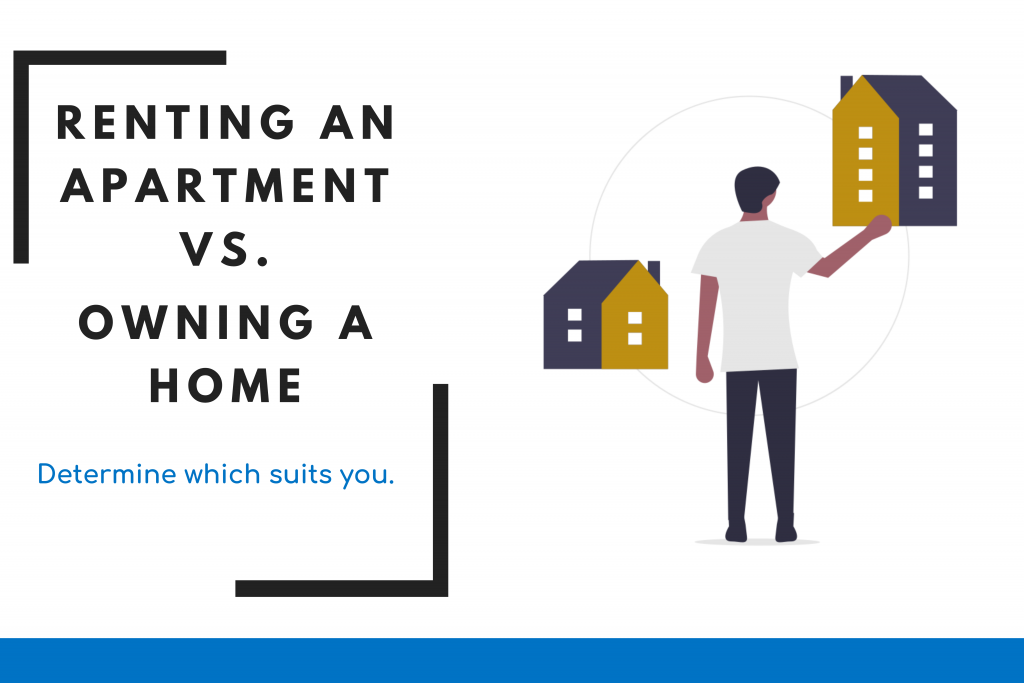Various qualifications are taken into account when being approved for a mortgage. But, of course, income is the most influential qualification, and it’s not restricted to your salary.
Investment income can also be used to qualify for a mortgage. So if you want to buy a home and have some money saved for investments, this blog post is for you!
Suppose you’re unsure how to qualify for a mortgage with investment income this guide is for you.
What Is Income?
Income is the money that comes in from all sources, including your job, investments, and other forms of income. When you’re applying for a mortgage, the lender will want proof of income to determine how much they’re willing to lend you.
Types of Income
Wages and Salaries: This is the most common income to qualify for a mortgage. Lenders will want to see your past two years of W-2 forms to verify your income.
If you’re self-employed, you’ll need to provide tax returns for the past two years.
Investment Income: It includes things like capital gains, dividend and interest income. If you have investment income, you’ll need to provide tax returns for the past two years to verify them.
Other Forms of Income: This can include things like child support, alimony, or disability payments. If you’re using other forms of income to qualify for a mortgage, you’ll need to provide documentation such as bank statements or award letters.
All About Investment Income
Investment income is money earned from investments, such as stocks, bonds, and mutual funds. This type of income is often called “passive income” because it’s not made through diligent work.
Instead, it’s generated passively by owning assets that throw off cash that generates dividend and interest payments. Investment income can be used to qualify for a mortgage in several ways.
The most common is by using it to offset other debts. For example, let’s say you have $100,000 in investment income and $50,000 in monthly debts.
In this case, the $100,000 would offset the $50,000 in debts, and you would only need to qualify for the remaining $50,000. In addition, investment income can help you qualify for a mortgage by raising your monthly income.
It is often done by including investment income in your “gross monthly income” (GMI). GMI is your total monthly income before taxes and other deductions are taken.
So, if you have a salary of $5,000 per month and $1,000 in investment income, your GMI would be $6,000.
Forms of Investment Income
The following list includes some of the investment income sources that can help you qualify for a mortgage:
Interest
It is the income earned from lending money to someone else. It can come from savings accounts, certificates of deposit (CDs), and bonds.
Capital Gains Income
It is the income earned from selling an investment for more than you paid. For instance, if you bought a stock for $10 per share and sold it later for $15 per share.
In this case, you would have a capital gain of $5 per share. But, of course, capital gains can also come from selling other investments, such as mutual funds, real estate, and collectibles.
Dividends Income
It is the income earned from owning shares in a company. When a company makes money, it can give some of that money back to its shareholders through dividend income.
Dividends are usually paid out quarterly and can be used to qualify for a mortgage. However, there are some restrictions.
For example, some lenders only allow a certain percentage of your income from dividends.
Rental income
It is the income earned from renting a property, such as an apartment, house, or office space. If you have rental income, you’ll need to provide documentation, such as a lease agreement or rent roll.
Rental income can be used to qualify for a mortgage in two ways. The first is by using it to offset other debts.
For example, let’s say you have a $1,000 monthly rental income and $500 monthly debts. In this case, the $1,000 in rental income would offset the $500 in obligations, and you would only need to qualify for the remaining $500.
Not only does rental income help cover the mortgage, but it also contributes to your monthly income. It is done by including the rental income in your GMI.
So, if you have a salary of $5,000 per month and $1,000 in rental income, your GMI would be $6,000.

How To Use Investment Income To Qualify For A Mortgage
Now that you know what investment income is and how it can be used to qualify for a mortgage let’s look at some of the qualifications you’ll need to meet.
Minimum Credit Score
TIn order to use investment income to qualify for a mortgage, you’ll need a minimum credit score, a down payment, and a maximum debt-to-income ratio. Your credit score is a number that lenders use to determine your creditworthiness.
It ranges from 300 to 850; the higher your score, the better. Your credit score must be 620, but it’s best to be 660+ if you want to use investment income to finance your mortgage.
If you still need a higher credit score, options are still available. For example, some lenders will allow you to use alternative forms of credit, such as utility bills or rent payments, to qualify for a mortgage.
Down Payment
It is the money you’ll put towards the purchase of your home. The amount of money you’ll need changes depending on the loan you’re requesting.
For example, if you’re applying for an FHA loan. The minimum down payment is 3.5%.
If you’re seeking a standard loan, the minimum amount you’ll need to put down is 5%.
If you don’t make a down payment of at least 20%, Most people have to pay for private mortgage insurance (PMI), depending on the size of their down payment.
Maximum Debt-to-income Ratio
The last qualification you’ll need to meet is a maximum debt-to-income ratio (DTI). The percentage of your monthly income goes towards debt monthly mortgage payment.
For example, let’s say your monthly income is $5,000, and your monthly debts are $1,000. In this case, your DTI would be 20%.
Closing costs
These are fees charged by the lender and can include everything from the cost of a credit report to title insurance. Closing costs can range from 2 to 5 percent of the loan amount, so it’s important to factor them into your budget when planning your home purchase.
Fortunately, there are ways to reduce your closing costs. For example, you can negotiate with the seller to have them cover part or all of the fees.
Some lenders offer programs to help cover the costs. So if you’re considering a home purchase, ask about closing cost assistance options.
Most lenders will require a DTI of 50% or less to qualify for a mortgage using an investment property. However, some lenders may be willing to work with a higher DTI if you have strong credit and a low debt-to-income ratio.
Investment Income and Mortgage
Now that you understand investment income and its different forms, let’s explore how to secure a mortgage using this type of income. There are two ways to do this: by using it to offset other debts or by using it to increase your total monthly payment.
To use investment income to offset other debts, you’ll need to provide documentation of the income, such as bank statements or investment account statements. The lender will then review the statements and use the income to offset any other debts you have, such as a car loan or credit card debt.
To use investment income to increase your total monthly income, you’ll need to provide documentation of the income and your most recent tax return. The lender will review the documents and use the income to increase your GMI.
It will, in turn, increase the amount you can borrow. However, others may only allow you to use investment income to offset other debts and not increase your monthly income.
It’s essential to check with the lender before applying for a mortgage to see if they have any restrictions on how investment income can be used.
Things You’ll Need To Know
If you’re using investment income to qualify for a mortgage, there are a few things to keep in mind.
First, you’ll need to provide documenting investment income. It can include bank statements, income tax returns, and award letters.
Second, the income may be taxable. It means you’ll need to have enough money left after taxes to make your mortgage payments.
Third, the income may be subject to “seasoning requirements.” A mortgage can only be approved if the applicant has had a regular income for a specific period of time. For example, some lenders require that you have received investment income for at least two years before it can be used to qualify for a mortgage.
Fourth, you’ll need to ensure that the investment income is “stable.” It means it’s not likely to go up or down in the future. For example, interest and dividends are usually considered stable forms of income, while capital gains are not.
How to Calculate Investment Income for a Mortgage
In qualifying income for a mortgage, you’ll need to know how to calculate it. The calculation will differ depending on the type of income you’re using.
For example, if you’re using dividends as investment income, you’ll need to take the total amount of dividends received and divide it by 12. It will give you the monthly income from dividends.
If you’re using capital gains as investment income, you’ll need to divide the total capital gains by 24. It will give you the monthly income from capital gains.
It’s important to note that these are just examples. The actual calculation will differ depending on the lender and the type of income you’re using.
It’s always best to check with the lender before applying for a mortgage to see their requirements.
Final Thoughts
If you’re thinking about using investment income to qualify for a mortgage, it’s essential to do your research. Each lender has different requirements, so checking with them before applying for a mortgage is necessary.
It’s also important to remember that investment income is taxable. It means you’ll need to have enough money left after taxes to make your mortgage payments.
Finally, you’ll need to ensure that the investment income is stable. It means it’s not likely to go up or down in the future.
If you satisfy these requirements, using investment income to qualify for a mortgage can be an excellent way to obtain the home you want.
INVESTMENT INCOME FOR MORTGAGE FAQ’s
What if I don’t have enough investment income to qualify for a mortgage?
The following methods can help you increase your investment income and qualify for a mortgage: getting a co-signer or making a larger down payment, for example.
You could also apply for a different type of loan, such as an FHA loan.
How long does investment income have to be received before it can be used to qualify for a mortgage?
It depends on the lender. For example, some lenders may require that you have received investment income for at least two years before it can be used to qualify for a mortgage.
Is investment income taxable?
Yes, investment income is taxable. However, you’ll need enough money after taxes to repay your mortgage loan.



